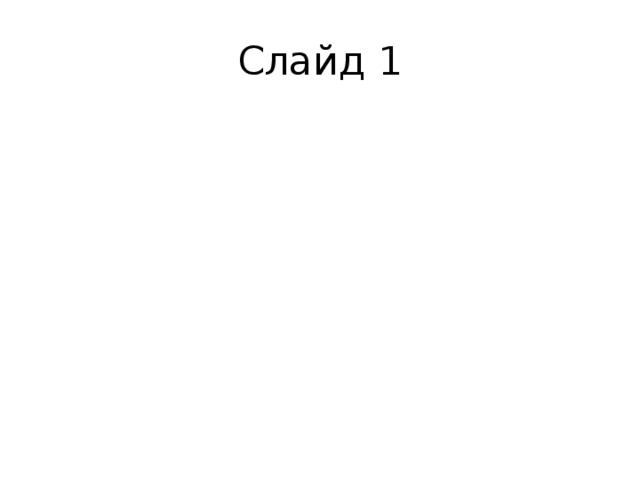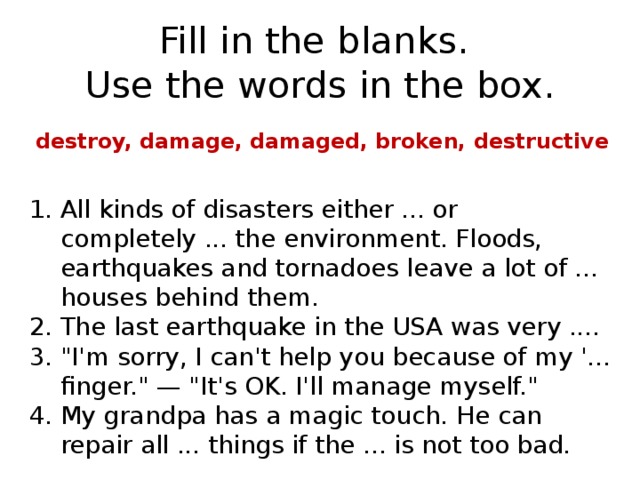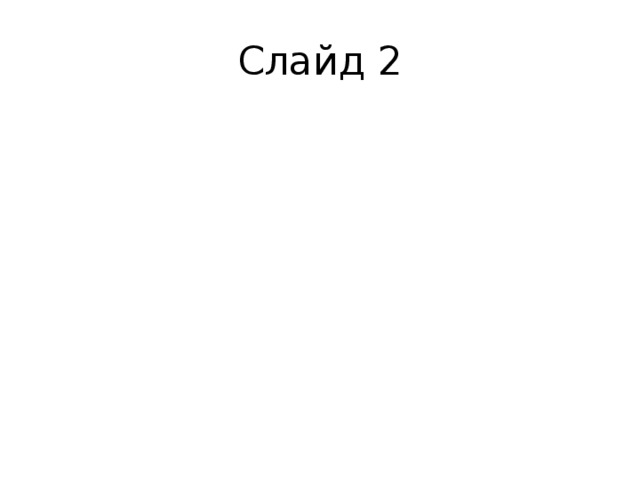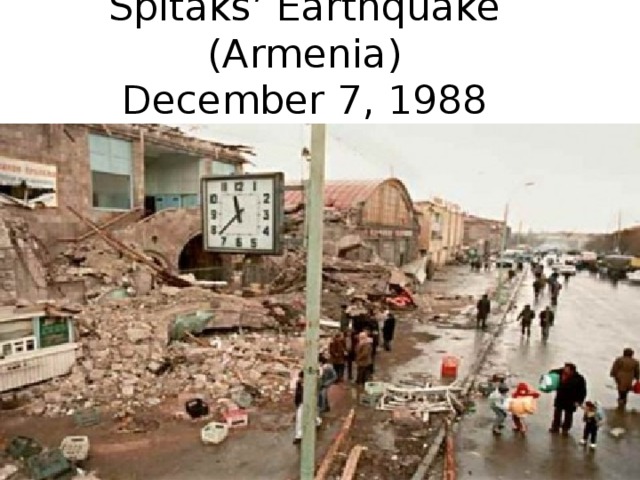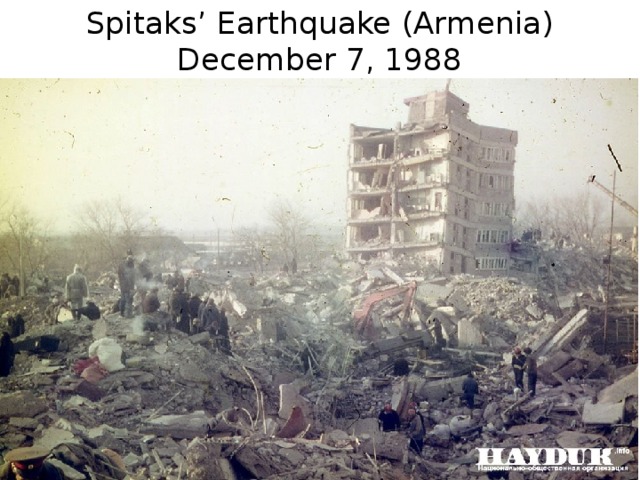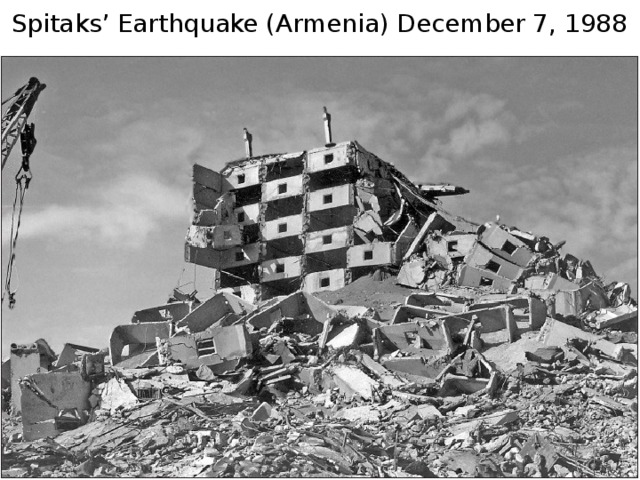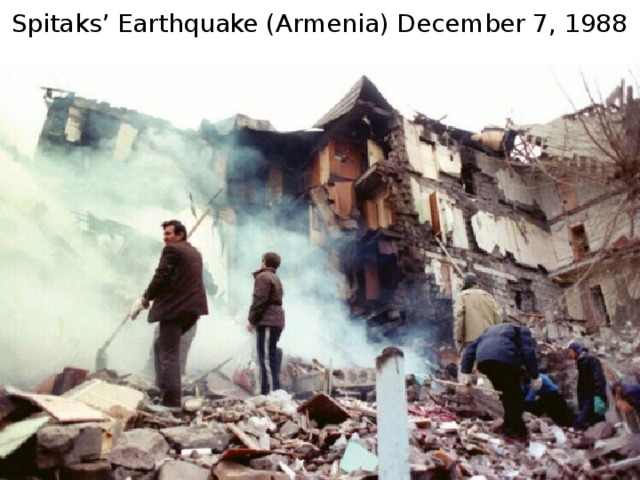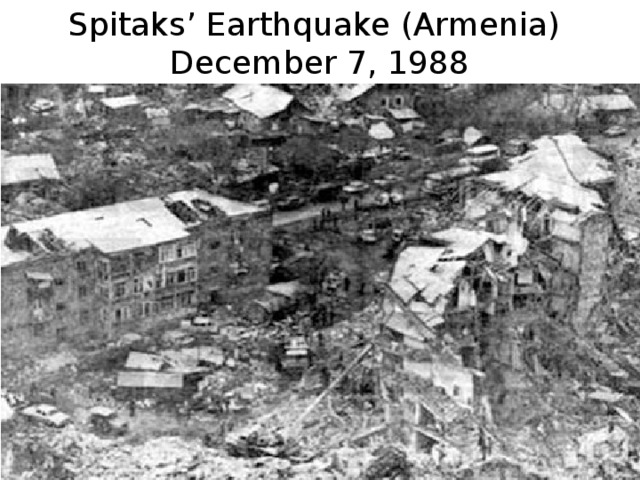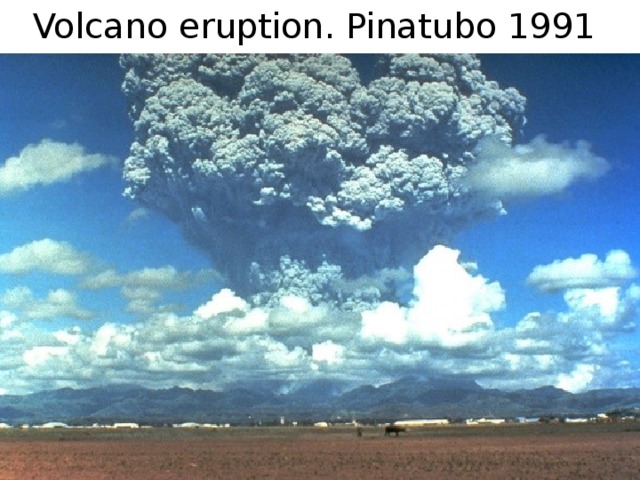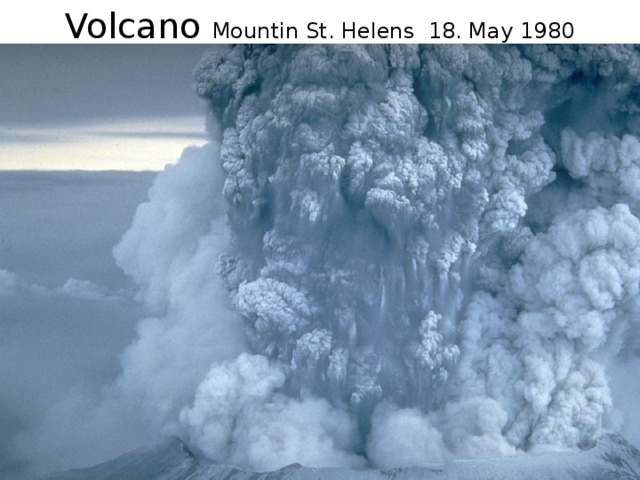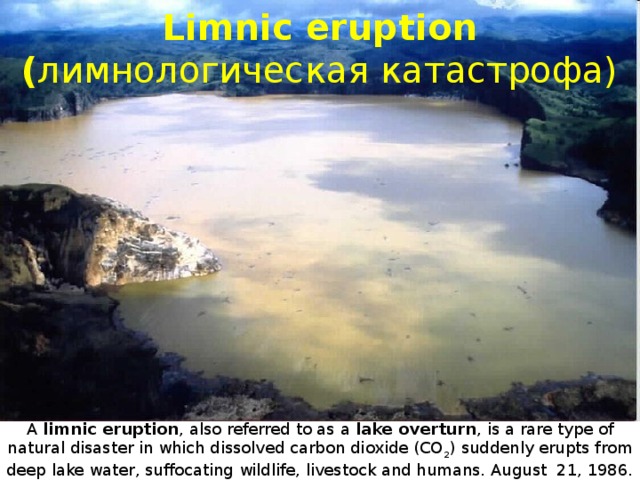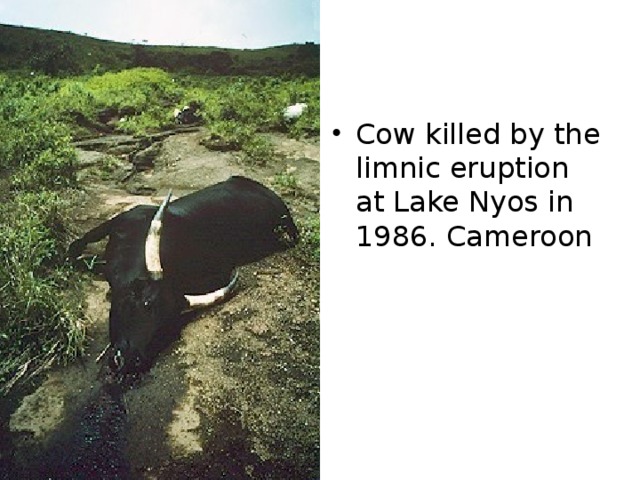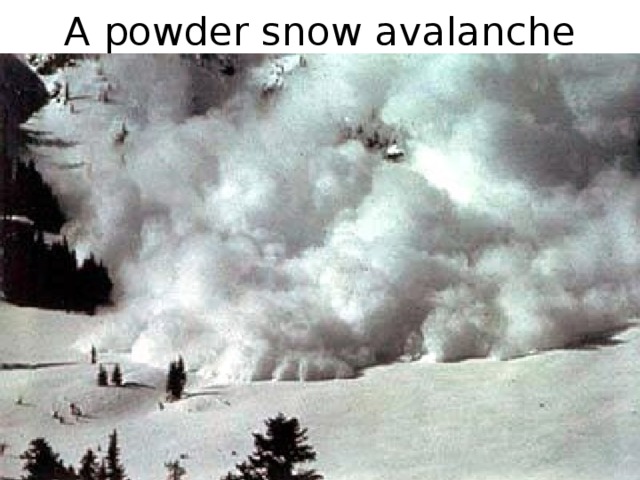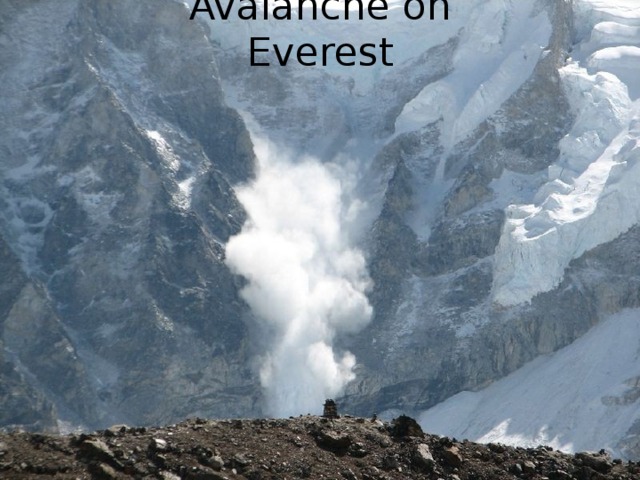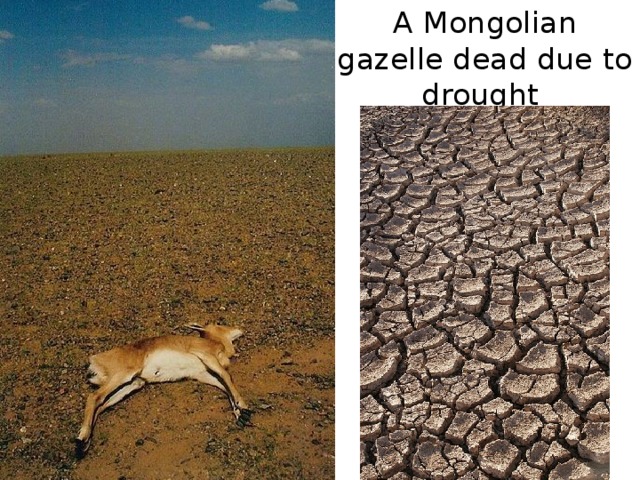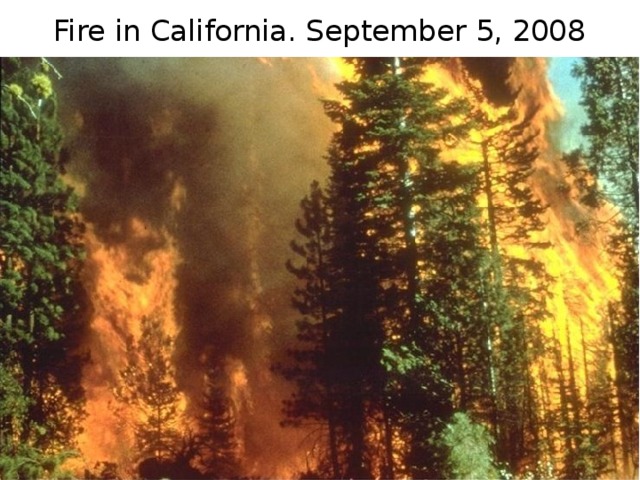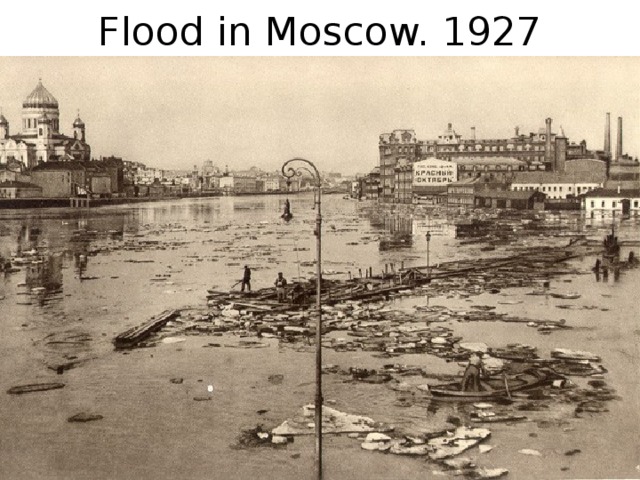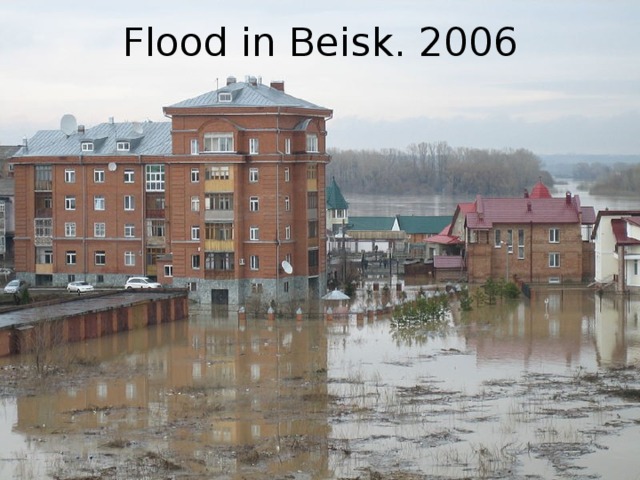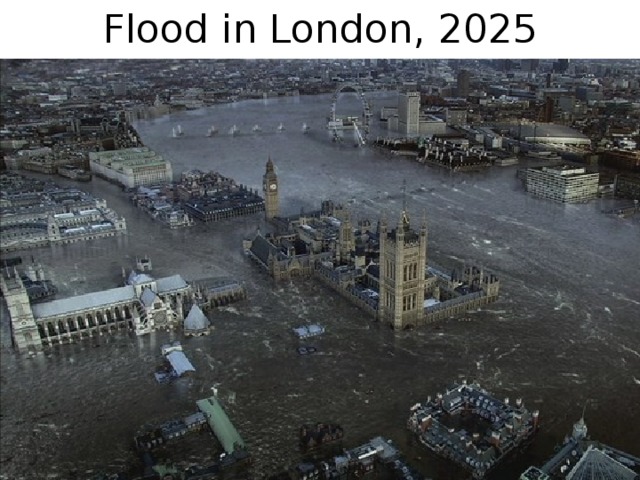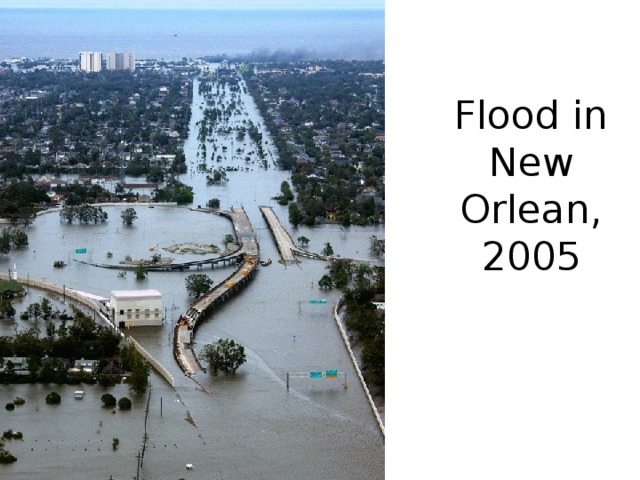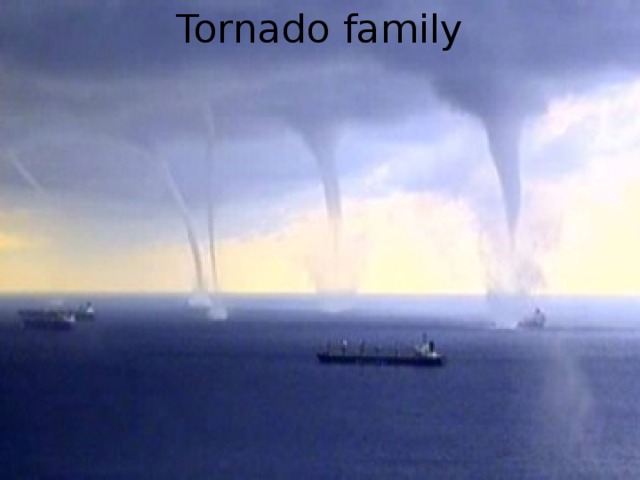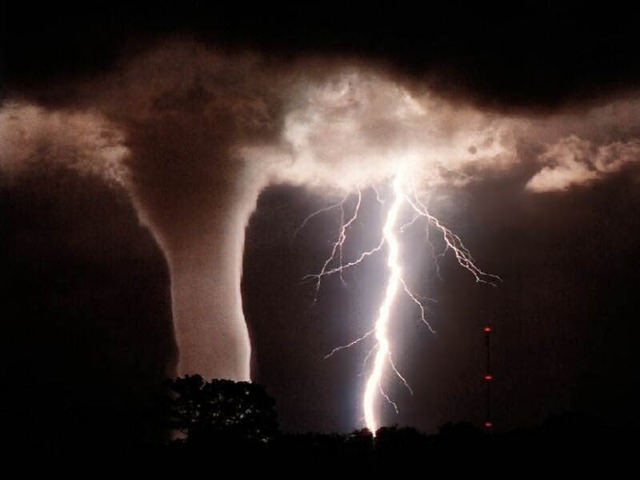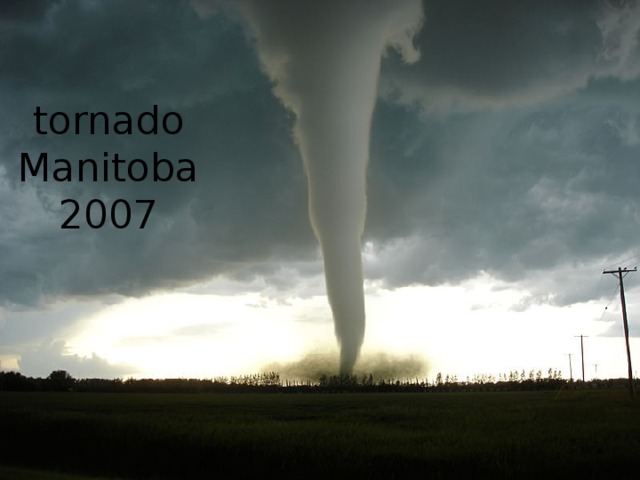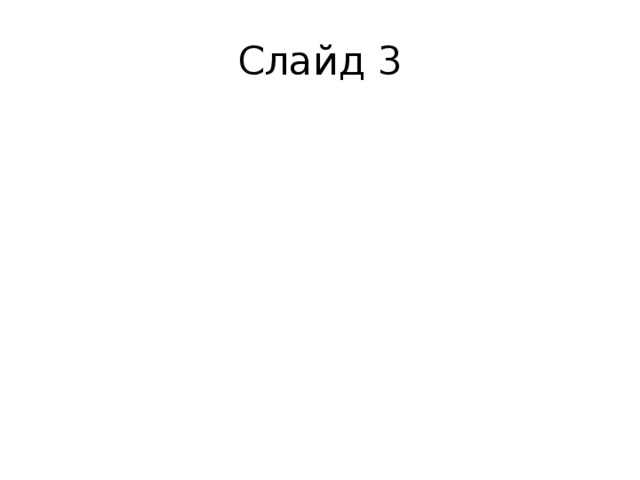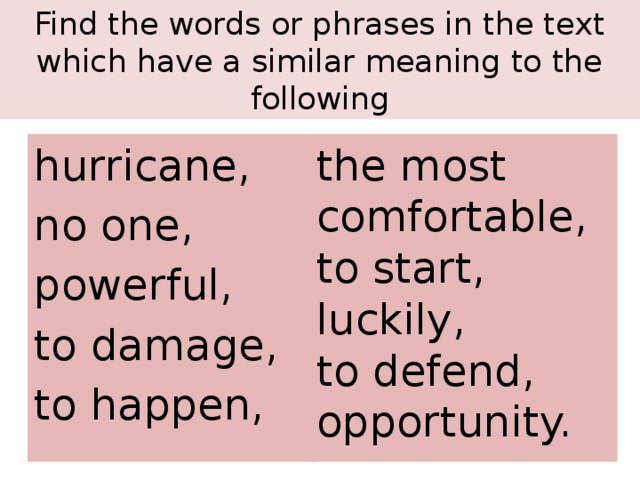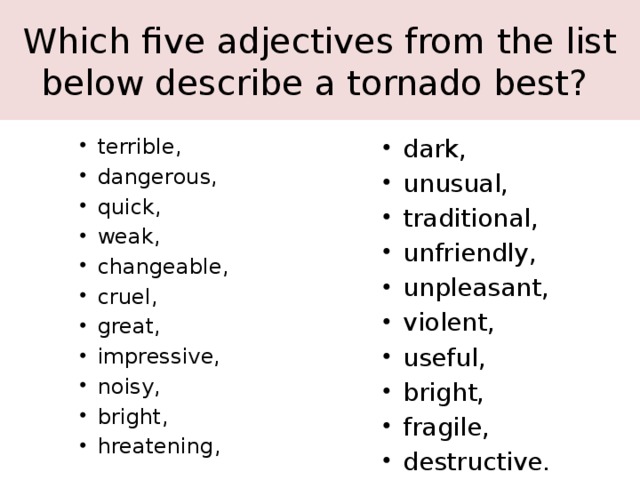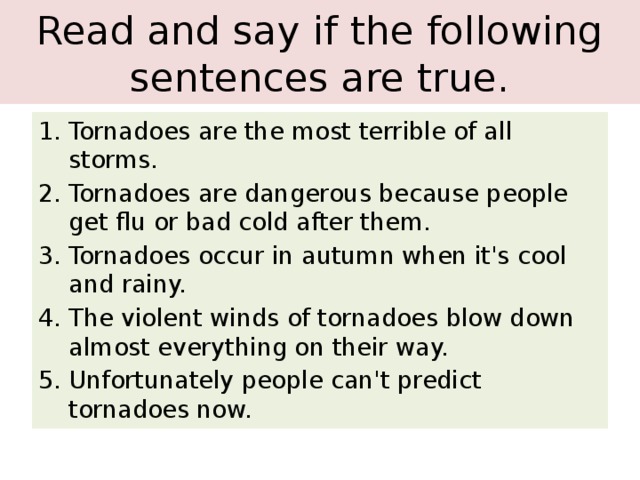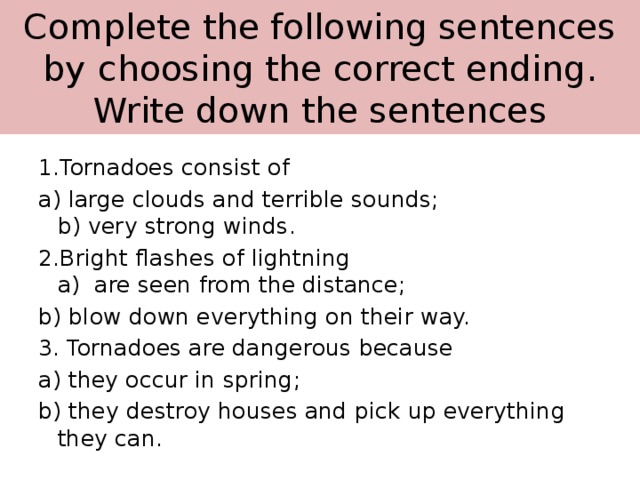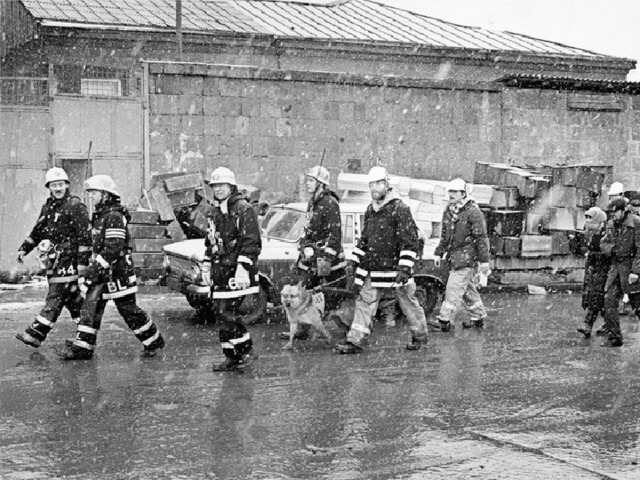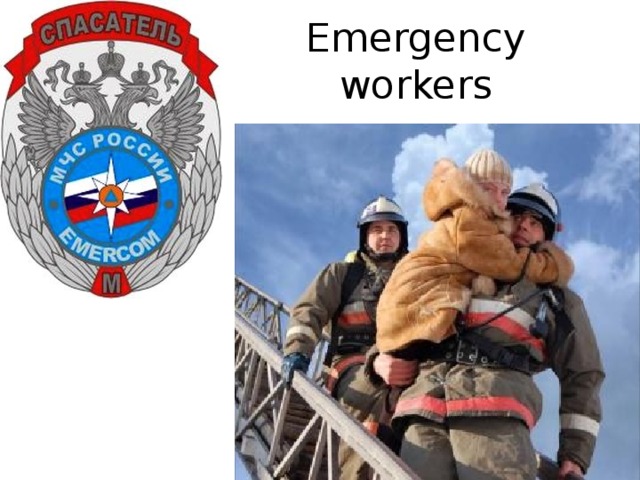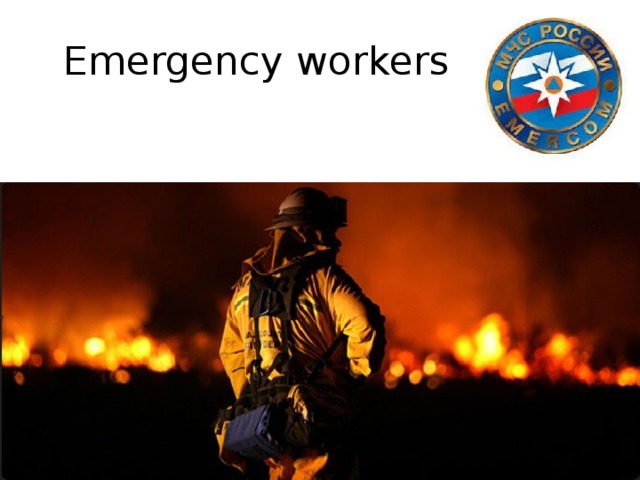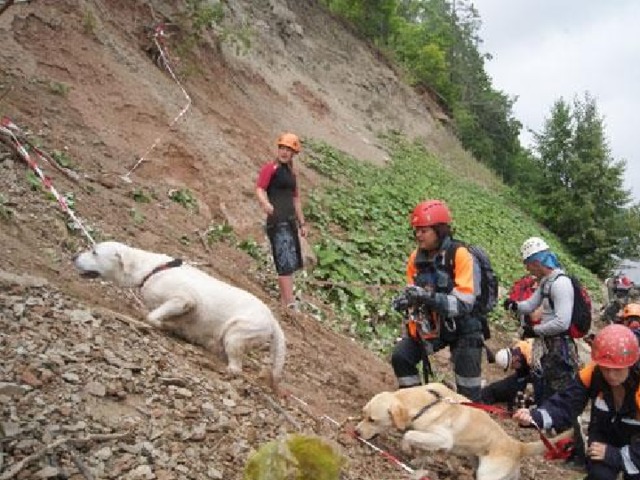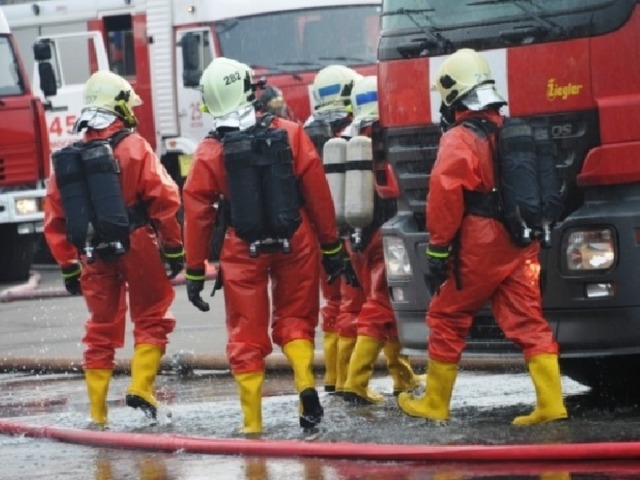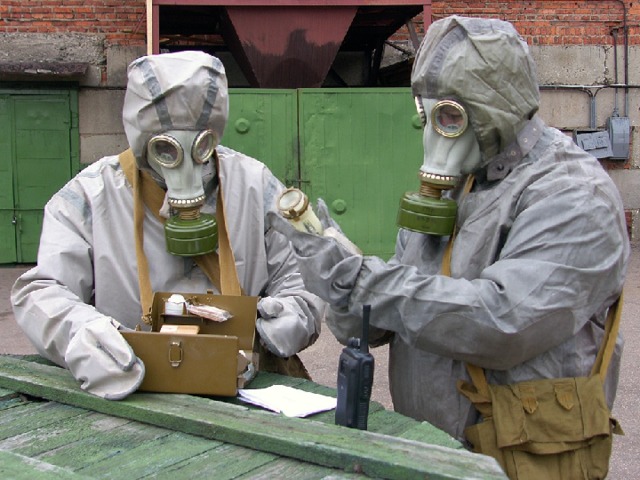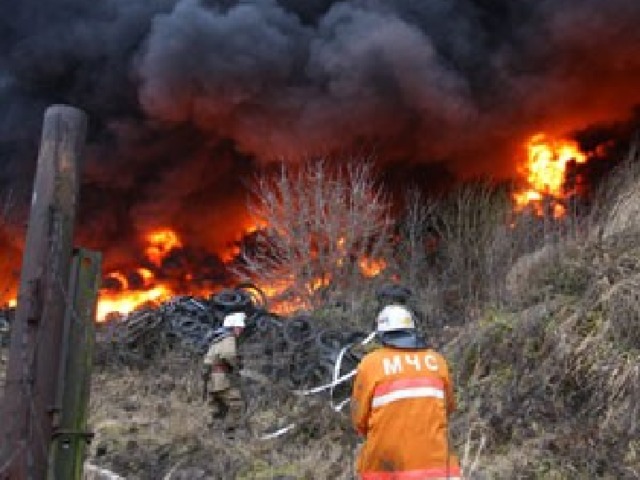Задачи:
- Развитие:
- комуникативных (речевых) навыков по теме «Natural Disasters».
- непроизвольного запоминания.
- кратковременной, оперативной и долговременной памяти.
- логического и филологического мышления.
- навыков аудирования.
- Контроль грамматических навыков: Past Simple & Past Continuous.
Воспитательно-образовательные аспекты:
1.Развивающий аспект
- Воспитательный аспект: приобщить учащихся к мировым экологическим проблеммам и глобальным катастрофам;
3.Социальный аспект
4.Учебный аспект
Языковой материал.
Л.Е. по теме: Tornadoes are the most terrible of all storms
The building was severely damaged by the flood/ hurricane/earthquake
Гр.М.: Past Simple & Past Continuous Tenses.
Тип урока: речевой (комуникативный)
Оснащение урока (Учебные пособия и оборудование): компьютер, мультимедийный проектор, экран, Презентации, аудиоматериал: аудиозапись (приложение к УМК).
Структура урока:
I. Подготовка учащихся к учебной деятельности.
1)организация класса
2)фонетическая зарядка
- речевая зарядка
П. Введение и закрепление нового ЯМ.
- Проверка домашнего задания. Работа с текстом.
- Заключительный этап.
а) подведение итогов урока
б) домашнее задание
в) выставление оценок
Ход урока.
I. Подготовка учащихся к учебной деятельности.
- Организация класса.
Задачи:
- Проверить готовность классного помещения к уроку.
- Проверить наличие учебников, тетрадей, дневников на партах.
- Провести организационную беседу с классом (с дежурным).
- Сообщить учащимся общие задачи урока и порядок работы.
Форма работы Т —> Сl.
Teacher:
- Get ready for the lesson. Put your books, exercise books and diaries on the desk. Stand up!
- Good morning! Sit down, please.
- I am very glad to see you! How are you?
- Форма работы T —>Cl.
Teacher: What date is it today?
Pupil: Today is the … of October.
Teacher: What day is it today?
Pupil: Today is ….
Teacher: Who is absent?
Pupil: Nobody is. All are present.
Teacher: What’s the weather like today?
Pupil: It’s a nice autumn day. It is warm and sunny. It doesn’t look like rain.
Teacher: It is a lovely day. Thank you, sit down.
Установка на урок.
Teacher: Children, today we'll continue talking about Natural Disasters. We are going to learn some information about tornadoes.
- Фонетическая зарядка.
Задачи:
- Снять произносительные трудности.
- Подготовить речевой аппарат к иноязычной деятельности.
Установка:
Teacher: As usual, we begin with pronunciation. Open your books at p.27. See ex.90. You will need these words today. Listen to them and read. Mind your pronunciation. (CD звуковое приложение к УМК).
Форма работы CD—> Сl
3) Речевая зарядка. Задачи:
- Проверить умение учащихся отвечать на вопросы.
- Тренировать лексические структуры.
Установка: Answer my questions.
Форма работы T —> Pl —> P2 —> РЗ —> P4 —> P5.
- T .: What is an earthquake?
- P1.: I think that an earthquake is a sudden shaking of the ground.
- T .: What can you say about a hurricane?
- P2.: A hurricane is a very violent wind or storm.
- T .: What is a flood?
- P3.: A flood is a large amount of water which quickly covers a place that is usually dry land.
- T .: What’s the Russian for “drought”?
- P4.: The Russian for “drought” is “засуха”.
- T .: How can you describe “a drought”?
- P5.: A drought is a long period of dry weather when there is not enough water.
- T .: Try to explain the meaning of the word volcano?
- P6.: A volcano is a mountain with a hole called a crater in the top. Sometimes lava and gases are released from the crater.
- T .: What’s the Russian for “disaster”?
- P7.: The Russian for “disaster” is “бедствие”.
II. Введение и закрепление нового ЯМ.
Задача: Развить непроизвольное запоминание.
Установка: Today we will continue to speak about disasters. But first you need some new words. Please, open ex. 87, p. 26. There are three words that you must differentiate: to destroy, to break and to damage. Read their meanings, the examples and translate.
(после того как выполнили данное упражнение, закрепить его)
T.: Look at the blackboard. Complete the sentences with the words in the box.
APPENDIX 8-1. – презентация в PowerPoint.
T.: Make up your sentences with these works.
Форма работы T —> Pl —> P2 —> РЗ —> P4 —> P5.
T.: Thank you.
ПI. Проверка домашнего задания.
Задача:
- Ознакомление учащихся с некоторыми значительными стихийными бедствиями.
- Проверка усвоения домашнего задания и качества его выполнения.
Цель: Проверить правильно ли выполнено задание.
Установка: And now look at the blackboard.
APPENDIX 8-2. – презентация в PowerPoint. (на экране кадры со стихийными бедствиями в разных точках земного шара).
Your have read and translated the text Tornadoes (ex. 89, p.26) at home. Now find the words and phrases in the text which have a similar meaning to the following:
Форма работы T —> Сl
APPENDIX 8-3. – презентация в PowerPoint. (на экране упражнение на проверку домашнего задания).
Форма работы T —> Pl —> P2 —> РЗ —> P4 —> P5.
Keys:
- Hurricane — tornado; no one - nobody; powerful - strong; to damage - to destroy; to happen ? to appear; the most comfortable — the most likely; to start — to occur; luckily — fortunately; to defend — to protect; opportunity - chance.
- Примерный ответ:
- It's true, because it is said in the text that "tornadoes are the most violent of all storms".
- It's false, because it is said in the text that "nobody can predict what they might do. Tornadoes destroy houses, carry away cars and telephone boxes".
- It's false, because it is said in the text that "tornadoes occur in the spring. A hot day in the afternoon or in the early evening is the most likely time for this dangerous storm".
- It's true, because it is said in the text that "the violent winds of tornadoes blow down almost everything on their way".
- It's false, because it is said in the text that "fortunately tornadoes can be predicted".
T.: - As you know, the disasters usually break something, damage buildings or even destroy towns. Who do you think helps people if they get into a disaster?
(Учащиеся могут дать ответы по-русски).
Yes, you're right. They are emergency workers.
- Read the text in ex. 95, p. 27 about these people and say who helps other people. (People who help others when there is a disaster are doctors, nurses, firemen, water and gas workers, the police, the army.)
APPENDIX 8-4
- Work in groups and decide what the emergency workers do. Ex. 96, p. 27, will help you. (5. Evacuate people from dangerous areas. 6. Get medicines and food to the dangerous places.)
- Заключительный этап
а) подведение итогов урока
Задача: проверить достигнуты ли поставленные в начале урока задачи.
б) домашнее задание
Задача: разяснить и частично выполнить домашнее задание.
Форма работы: T —> Pl —> P2 —> РЗ —> P4 —> P5
- T.: Well done. Thank you very much. So to sum up say what new information have you learnt? Which of the activities at the lesson were more interesting for you?
- (ученики отвечают на вопросы учителя).
- Now you can speak about natural disasters and so at home do ex. 22, on p. 35. Write down what is typical of a tornado, an earthquake, a hurricane, a volcano, a flood and drought. Use the phrases in the box.
в) выставление оценок
Задача: 1. Определить уровень сформированности навыков и умения по видам речевой деятельности в соответствии с этапами уроков
3. прокомментировать выставленные оценки.
T.: -Thank you very much. Well done!
Your marks are…
The bell has gone. The lesson is over. You are free. Thank you. Good-bye.
Cl - Thank you. Good-bye.
